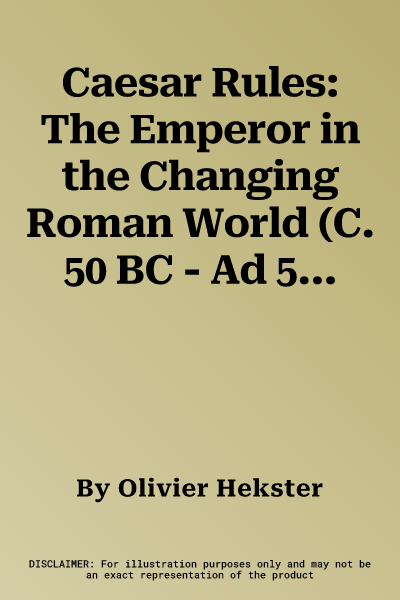Olivier Hekster
(Author)Caesar Rules: The Emperor in the Changing Roman World (C. 50 BC - Ad 565)Hardcover, 8 December 2022

Qty
1
Turbo
Ships in 2 - 3 days
Only 3 left
Free Delivery
Cash on Delivery
15 Days
Free Returns
Secure Checkout

Print Length
414 pages
Language
English
Publisher
Cambridge University Press
Date Published
8 Dec 2022
ISBN-10
1009226797
ISBN-13
9781009226790
Description
Product Details
Author:
Book Format:
Hardcover
Country of Origin:
GB
Date Published:
8 December 2022
Dimensions:
24.21 x
16.61 x
2.39 cm
ISBN-10:
1009226797
ISBN-13:
9781009226790
Language:
English
Location:
Cambridge
Pages:
414
Publisher:
Weight:
929.86 gm